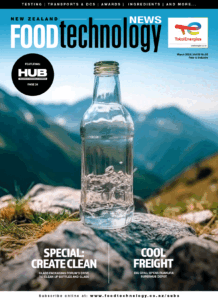
By Food Futurist, Tony Hunter
One of the problems of the global food system is that we’re locked into a small range of key ingredients that are often geographically localized. One of these is the notorious palm oil, 85% of which comes from Malaysia and Indonesia.
Palm oil is used in a staggering array of products, from pizza and doughnuts to cosmetics and detergents. It’s even used as biofuel and is found in over half of all US packaged products. The vulnerability of this product in the global food system was shown by Indonesia’s recent month-long export ban, which sent shockwaves around the world.
From 1995 to 2021 palm production rose from 15.2 million tonnes to 73 million tonnes and occupies some 10% of global permanent crop land. Consumption has levelled off since 2018 but if the next two billion people on the planet consume only the current global average of 8kg per person this translates to a staggering increase of some 18 million tonnes of palm oil! Imagine the deforestation required.
It seems painfully obvious that we need an alternative to palm oil. Alternative fats and oils from genetically modified yeast from NoPalm Ingredients could be just the replacement we’re looking for. They’re also ‘tuneable’ for fatty acid profile so are not just a substitute for existing tropical oils but could actually offer improved performance to manufacturers.
Another advantage of the NoPalm technology is that their yeast can be grown on side stream or waste products. They can use anything that contains either sugar, organic acids, or alcohol, even potato peels or reject vegetables. This process offers another way of achieving a localised circular food economy.
We need to find palm oil alternatives to meet the demand from expanding global population and middle classes. This technology is one way to address the problem and another tool for reimagining the global food system and localising food production. Localisation will increase regional and country level food security and create a far more robust and resilient food system.
Such reimagining of our global food system is of paramount importance to sustainably and equitably feeding the growing global population.
Tony Hunter is a global futurist, food scientist, speaker and foresight strategy consultant. He consults and speaks globally, using his distinctive combination of scientific qualifications, business experience and detailed understanding of exponential food technologies to deliver a unique perspective on the future of food.
The information and opinions within this column are not necessarily the views or opinions of Hot Source, NZ Food Technology or the parent company, Hayley Media.


































































































